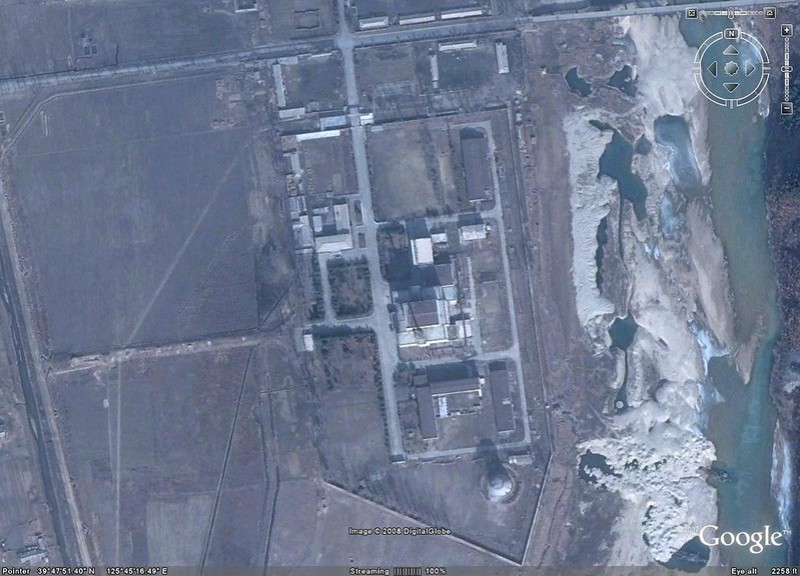
The Democratic People's Republic of Korea, more commonly referred to as North Korea, reportedly reactivated its nuclear reactor that was shut down during former President Donald Trump's administration.
The Gateway Pundit reported that North Korea's Yongbyon Nuclear Reactor site has restarted its activities after it was shutdown in 2018. The outlet stressed that the shutdown was due to Trump showing "strength," and it would "have remained inactive" had Trump been the president. "The Biden Effect," however, seemed to have brought about its reactivation, the media outlet claimed.
"At this point, it looks like Biden's incompetency will eventually drag every major country into a global catastrophe..and at the rate it's going now, we won't even have to wait until the end of the year--Biden has single-handedly enabled the destabilization of the global hierarchy, creating a mad dash to the top. Thanks to the chaos, North Korea is looking to jump back in and get a better seat at the table," The Gateway Pundit said.
Intelligence reports on North Korea revealed that the Yongbyon 5-megawatt nuclear reactor site have resumed plutonium production for two months now and may signal President Kim Jong-un's intentions to expand the nuclear weapons aresenal of their country.
The United Nations International Atomic Energy Agency revealed that they are "deeply troubled" that the North Korean government have restarted its reactor in Yongbyon, which is believed to be the "heart" of the country's "nuclear programme." UN Spokesperson Stephane Dujarric confirmed that UN Secretary General Antonio Guterres is aware of the matter and expressed that he is "concerned by the latest developments."
"He calls for the DPRK to refrain from any nuclear weapon-related activities and to resume talks with the other parties concerned," Dujarric said pertaining to Guterres.
"Diplomatic engagement remains the only pathway to sustainable peace and complete and verifiable denuclearization of the Korean Peninsula," Dujarric pointed out.
The International Atomic Energy Agency (IAEA) report said the "reactor has been discharging cooling water since July, suggesting it is operational" based on their Annual Report that was issued before the Member States' meeting.
The report highlighted that "a full batch of spent fuel was handled, in contrast to the shorter time needed for waste treatment or maintenance" from the middle of February to the end of July this year. It also disclosed that the Pyongsan Mine and Concentration Plant showed that "there were indications of mining and concentration activities."
The IAEA raised in its report that the operation of the nuclear reactor "and the Radiochemical (reprocessing) laboratory" are a "clear violation of UN Security Council resolutions."
The IAEA was expelled from North Korea in 2009 and was only able to get information on Pyongyang's continuous nuclear weapons development "largely through satellite imagery" to gauge "how many weapons the regime is capable of producing."
"This latest observation was the first sign of operational activity at the Yongbyon reactor since December 2018, months after former US President Donald Trump met North Korea leader Kim Jong-un in Singapore," the IAEA said.
In line with the said findings, the IAEA already called the attention of North Korea for compliance to the UN Security Council resolutions and for its cooperation to the global Nuclear Non-Proliferation Treaty Safeguards Agreement.
As per the IAEA report, Jong-un submitted in January 2021 the update on their nuclear efforts that showed how they intend to mastermind "a great revolutionary turn for possessing the completely new nuclear capabilities aimed at attaining the goal of modernization of the nuclear force" of North Korea.























